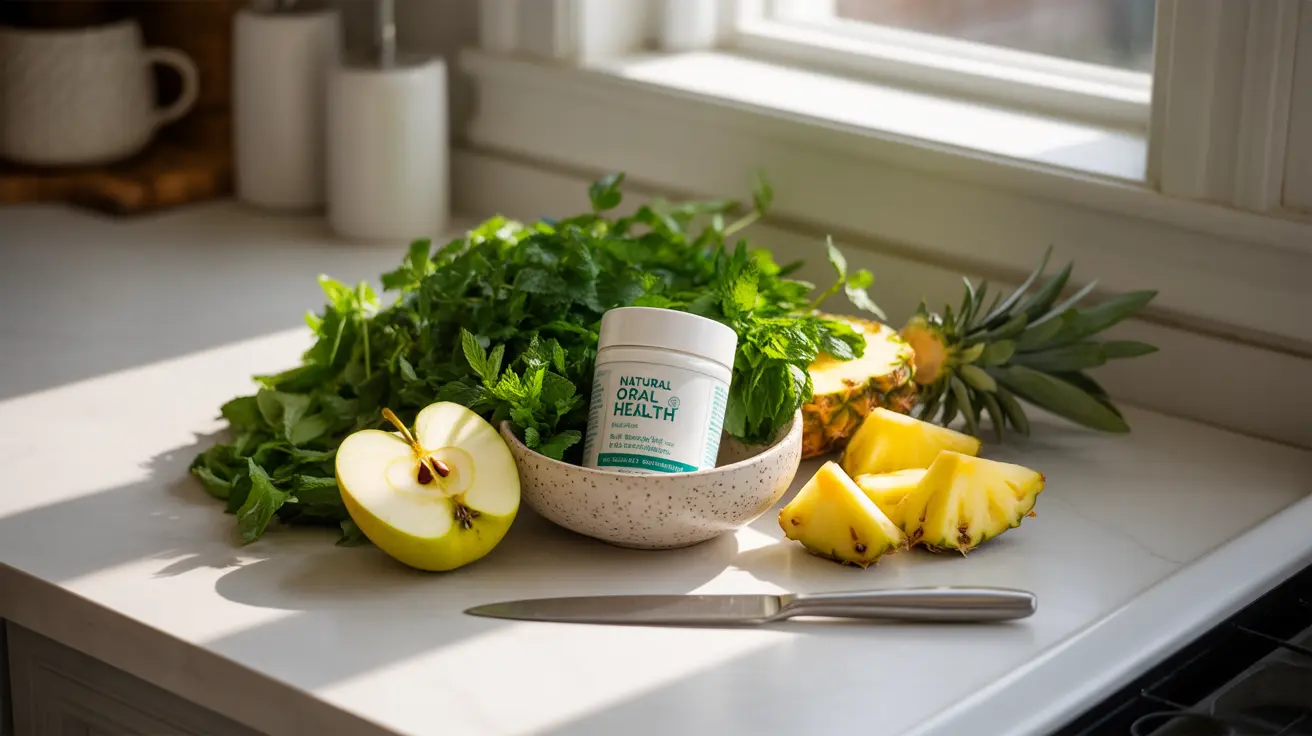Bad breath, also known as halitosis, can be an embarrassing and persistent problem that affects both your social interactions and self-confidence. Fortunately, there are numerous effective home remedies that can help combat unpleasant breath and promote better oral health. This comprehensive guide explores natural solutions and practical steps you can take to freshen your breath naturally.
Understanding the Causes of Bad Breath
Before diving into remedies, it's important to understand that bad breath typically stems from bacterial growth in the mouth, poor oral hygiene, certain foods, or underlying health conditions. Addressing the root cause is crucial for finding an effective solution.
Essential Oral Hygiene Practices
The foundation of fresh breath starts with proper oral care habits:
- Brush teeth thoroughly twice daily for at least two minutes
- Floss daily to remove trapped food particles
- Clean your tongue with a tongue scraper or brush
- Replace your toothbrush every 3-4 months
- Use an alcohol-free mouthwash
Natural Food Remedies for Fresh Breath
Breath-Freshening Foods
Certain foods naturally combat bad breath through their antimicrobial properties or ability to stimulate saliva production:
- Fresh parsley and mint leaves
- Crisp apples and raw vegetables
- Fresh pineapple
- Green tea
- Plain yogurt with active cultures
Foods to Avoid
Some foods are known to contribute to bad breath and should be limited:
- Garlic and onions
- Strong-smelling spices
- Coffee and alcohol
- Processed foods high in sugar
Effective Homemade Mouth Rinses
Create these simple yet effective mouth rinses using common household ingredients:
Baking Soda Rinse
Mix 1/2 teaspoon of baking soda in a glass of warm water. This solution helps neutralize acid and kill bacteria that cause bad breath.
Apple Cider Vinegar Solution
Combine one tablespoon of apple cider vinegar with a cup of water. Gargle for 30 seconds before brushing your teeth to help maintain a balanced oral pH.
Lifestyle Changes for Better Breath
Implement these daily habits to maintain fresh breath:
- Stay well-hydrated by drinking plenty of water
- Quit smoking and avoid tobacco products
- Practice good digestive health
- Maintain regular dental check-ups
- Consider using sugar-free gum containing xylitol
When to Seek Professional Help
If bad breath persists despite trying home remedies for two weeks, consult a dentist. Chronic halitosis might indicate:
- Gum disease
- Tooth decay
- Sinus infections
- Digestive issues
- Other underlying health conditions
Frequently Asked Questions
What are the most effective home remedies to get rid of bad breath quickly?
The most effective immediate solutions include thoroughly brushing teeth and tongue, using a salt water rinse, chewing sugar-free gum, and consuming fresh herbs like parsley or mint. Drinking plenty of water and using a baking soda rinse can also provide quick relief.
How can improving dental hygiene help prevent and treat bad breath?
Good dental hygiene removes bacteria, food particles, and plaque that cause bad breath. Regular brushing, flossing, and tongue cleaning eliminate these sources of odor while maintaining healthy oral bacteria balance.
Are certain foods like parsley, pineapple, or apples good for freshening breath naturally?
Yes, these foods are effective natural breath fresheners. Parsley contains chlorophyll which has deodorizing properties, pineapple contains enzymes that help clean the mouth, and apples' crisp texture helps clean teeth while stimulating saliva production.
How do homemade mouth rinses with baking soda or vinegar work to reduce bad breath?
Baking soda neutralizes acid-producing bacteria and balances oral pH levels. Apple cider vinegar creates an environment where harmful bacteria can't thrive. Both solutions help maintain a healthy oral microbiome.
When should I see a dentist if home remedies don't improve my bad breath?
If bad breath persists for more than two weeks despite consistent use of home remedies and good oral hygiene, consult a dentist. This could indicate an underlying dental or medical condition requiring professional treatment.




